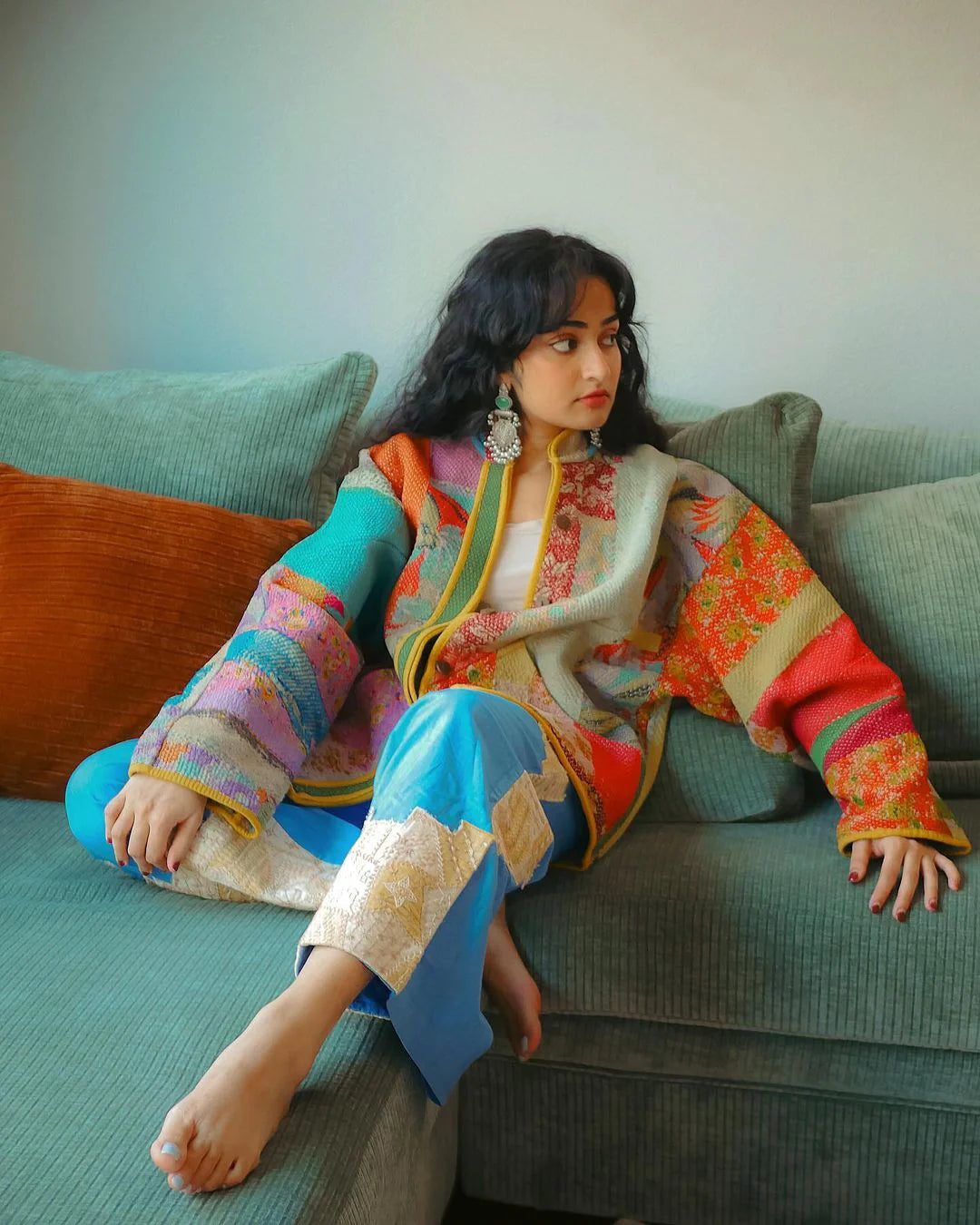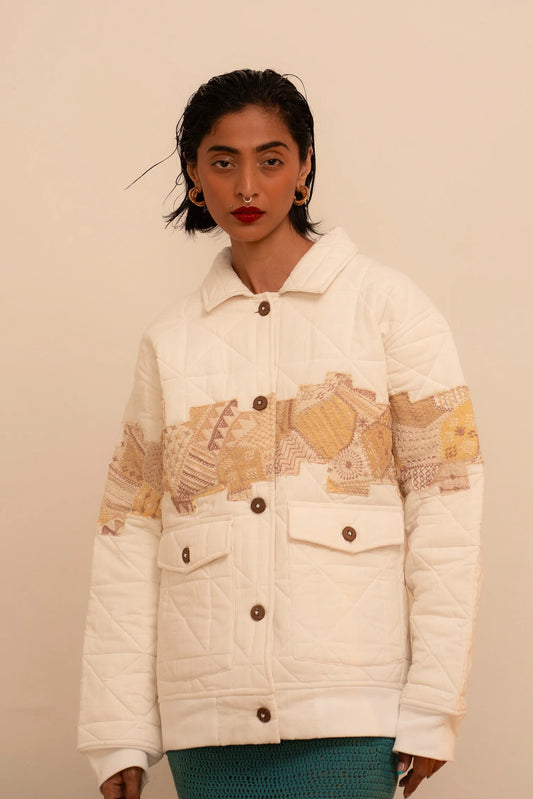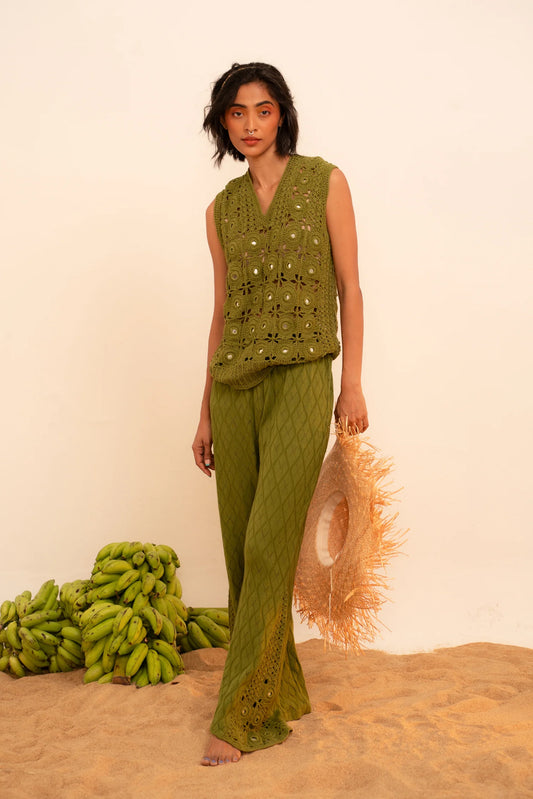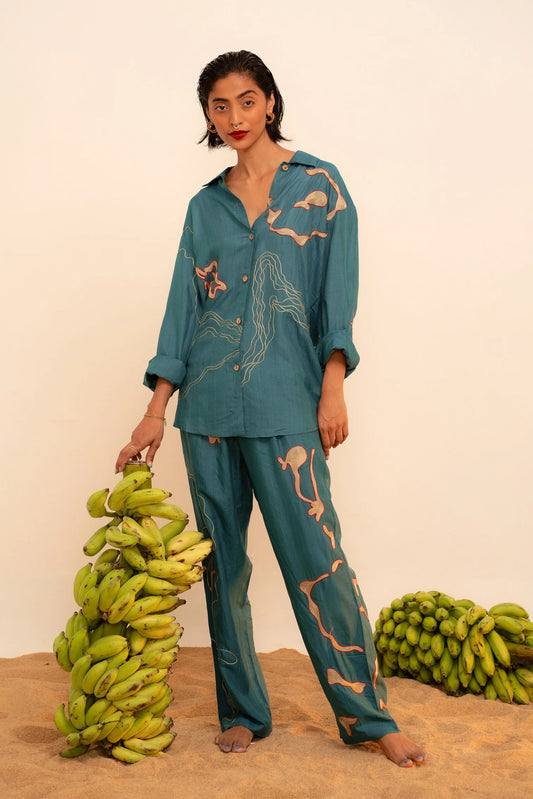
Tega
Made in Sandur, Karnataka
Meet the Founder
Niha Elety, a sustainable fashion advocate and designer, uses fashion, art, and heritage to raise awareness about sustainability and its importance. Upon joining the sustainability space, Niha noticed a lack of discussions about culture and ancestral knowledge. Her goal has since been to bring inclusivity and a variety of perspectives from BIPOC creators, the original sustainability leaders, to the environmental movement. Niha actively works to bring these conversations to the forefront as a speaker on cultural sustainability and founder of Tega Collective. Unique artisan partners for capsule collections see 18% of the profits funneled back to the communities TEGA works with, aiming to remove the traditional hierarchy of power and profit.
Tega Philosophy
Always Inspired
TEGA is continuously inspired by the Adivasi community’s way of life, incorporating native fibers, plant dyes, handcraftsmanship, and artistic expression. The first two collections were co-created with Lambani artisans and feature natural handwoven fabrics, intricate Lambani hand-embroidery passed down for centuries, and cowrie shells. Each product description highlights the specific plant dyes and hand embroidery used.
Dedication to Craft
Each collection by TEGA is co-created with a specific Adivasi community, showcasing their traditional colors, patterns, and natural symbols. TEGA's pieces embrace and amplify everyone across the gender and size spectrum. The first two collections were created in collaboration with Sandur Kushala Kala Kendra, an NGO focused on supporting Lambani craft. Each piece is made with natural handwoven fabrics and features Lambani hand-embroidery representing various elements of nature. Further details about the fabrics, dyes, and processes used can be found on the Sustainability page.
Community Resilience
TEGA strives to build healing and enriching relationships with the communities and ecosystems that support them. Their wealth distribution model channels 15% of profits back to the communities they work with for each collection, aiming to dismantle the traditional hierarchy of power and profit. Additionally, 3% of profits are donated to organizations supporting Adivasi community regeneration and land back initiatives.
Products from Tega
-
Samudram | Coral Silk Trousers
Regular price $227.00 USDRegular priceUnit price / per -
Samudram | Coral Bralette
Regular price $101.00 USDRegular priceUnit price / per -
Samudram Reef | Two Piece Gown
Regular price $341.00 USDRegular priceUnit price / per -
Samudram | Quilted Patchwork Jacket
Regular price $286.00 USDRegular priceUnit price / per -
Samudram | Patchwork Wide-Leg Pants
Regular price $197.00 USDRegular priceUnit price / per -
Samudram | Knit Flare Pants
Regular price $206.00 USDRegular priceUnit price / per -
Samudram | Crochet Mirror Vest
Regular price $183.00 USDRegular priceUnit price / per -
Samudram | Coral Silk Shirt
Regular price $227.00 USDRegular priceUnit price / per








